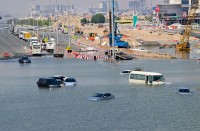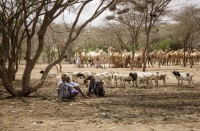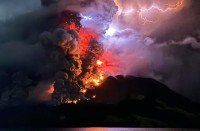https://youtu.be/KepGdwKFrG8
UN biodiversity talks opened in Montreal on Wednesday, in what is being billed as the “last best chance” to save the planet’s species and ecosystems from irreversible human destruction.
What do all of these species have in common? They have all gone extinct due to human activities.
Extinction is a natural process and, in fact, 99% of the four billion species that have existed on our planet have disappeared. It is balanced by the evolution of new species. But it is not simply about species going extinct, but how quickly this is happening.
The IUCN estimates that around 800 species of vertebrates have possibly gone extinct since the 16th century, with most extinctions occurring since 1900. This is likely a serious underestimate as many species have not been formally described.
Even for species not considered threatened with extinction, population declines are frequent.
This biodiversity decline has reached a point where some experts are saying a mass extinction event is already underway, only the sixth one over the course of Earth’s history.
The population of African elephants, for example, has plummeted from around 26 million in the 19th century to around 400,000 today.
Species are disappearing due to humans fragmenting habitats, introducing non-native species, spreading pathogens, and changing global climate. Scientists suggest that biodiversity declines cannot be reduced if we fail to limit warming below 2°C.
Species are links in ecosystems, and as they disappear, the species they interact with are likely to vanish as well. A study shows that a number of ecosystems are already showing evidence of collapse – irreversible change to ecosystem structure, composition and function – such as the Great Barrier Reef in Australia.
Environmentalists warn that drastic and immediate conservation actions are necessary to preserve biodiversity and protect species and their habitats.
EMMANUELLE BAILLON, JULIE PEREIRA / AUDIO NETWORK / AFP VIDEOGRAPHICS / AFP







